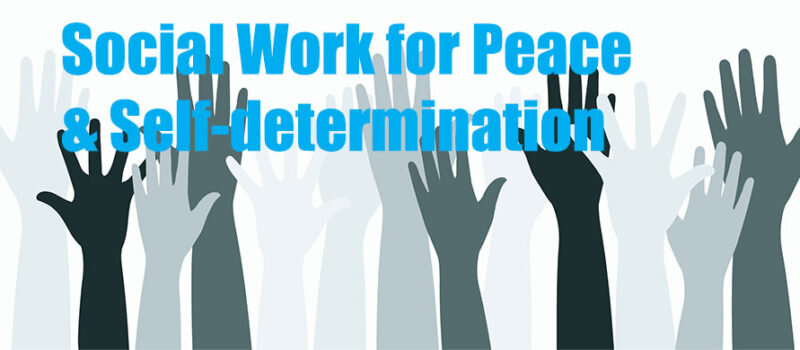Self-Determination

IMAGINE yourself as a Kashmiri born in Srinagar on Jan 5, 1949. You are 73 years old, and have completed nearly every phase of your life. You took decisions on what to study, where to work, how to contribute, and preparing to retire. A full circle of life. But at every stage, you were reminded that you were not free, that you were under Indian occupation, a kind of colonial rule. That’s the story of every man and woman who lives in the Valley of Kashmir or the Jammu region. You feel helpless and angry.
For all Kashmiris, Jan 5 every year is a reminder that the promise given to them on Jan 5, 1949, remains unfulfilled. That day, the United Nations Commission on India and Pakistan adopted a resolution calling for a free and fair plebiscite in Jammu and Kashmir. Ever since, like a ritual, the Kashmiris mark self-determination day, hoping that the world would listen. But year after year, the frustration has mounted. It is understandably getting hard for the Kashmiris to keep faith in international justice, or even stay optimistic. And yet, the Kashmiri struggle goes on. The torch of freedom remains aloft.
The right of a nation or community to self-determination is an important principle of the UN Charter. When the UN was born in 1945, it had only 73 members. Over the years, scores of nations attained their independence thanks to the principle of self-determination, swelling the UN membership to 193. The two peoples that could not access their right to self-determination were the Palestinians and Kashmiris.
I hail from central Punjab. The mother of my mother was a Kashmiri. Most Kashmiris have close relations with the people of central and northern Punjab. Our rivers have flowed down from Kashmir to present-day Pakistan for centuries. All roads from the Kashmir Valley head towards northern Punjab. Kashmir’s mandi (market) had traditionally been Rawalpindi. How can all these links be cut off simply because India does not want to let Kashmiris decide how they wish to live? I am particularly surprised that even after seven decades of Kashmiri resistance to Indian rule, the Indian leadership is unable to deduce that the Kashmiris simply do not wish to live with India.
Jan 5 is a reminder of an unfulfilled promise to Kashmiris.
In the past two and a half years, the situation has taken an ugly turn. The Indian government abrogated Article 370 of the Indian constitution, robbed the Kashmiris of their statehood, and started inflicting further excesses on these freedom-loving people. I have often wondered what end goal does India have in mind for Kashmir. Can it realistically maintain its colonial-like rule over eight million people? Perhaps not. India is already experiencing centrifugal tendencies in several parts of the country; how would India keep its internal stability by continuing its occupation of another 8m agitated souls?
Some analysts have argued that India does not wish to let Kashmiris exercise self-determination because if that happens, other regions in the country would also demand freedom. This argument contradicts the historical process. No nation can forever rule an unwilling population. Some strategists assert that Kashmir’s location is strategically important for India. Again, how can an unwilling population be a strategic asset for India? Some ambitious BJP enthusiasts are excited that after the actions of August 2019, and the introduction of a new domicile law, Kashmiris would no longer be a Muslim-majority community. This approach too would not work as all Kashmiris, including pro-India factions, have united in their opposition to the assault on Kashmiri statehood and identity.
It is important for the Indian leadership and its thought leaders to think this through. Ruling a population by force, undermining their identity, and suspecting each Kashmiri who aspires self-determination for his people, will never consolidate the Indian occupation of Kashmir.
A better alternative is to find ways to resolve the Kashmir dispute with Pakistan in accordance with the wishes of the Kashmiri people. The UN Security Council resolutions provide a reasonably good framework to resolve this conflict.
Can we all imagine how life would have been for every South Asian, if India had chosen the path of leading the region, not by coercion, but by mutual respect and nurturing interdependence? Today, South Asia is the least integrated and most conflict-ridden region. Can all this change? Perhaps a resolution of the Kashmir dispute could be a good beginning to defuse tensions, and let South Asia emerge as a region of peace and tranquility. Will India listen to the Kashmiri and Pakistani voices on Jan 5 that is today? Not sure, but one does hope that one day it will.
Aizaz Ahmad Chaudhary is Former Foreign Secretary and the author of 'Diplomatic Footprints'
(The views expressed in this article are not those of the Tehran Times)
